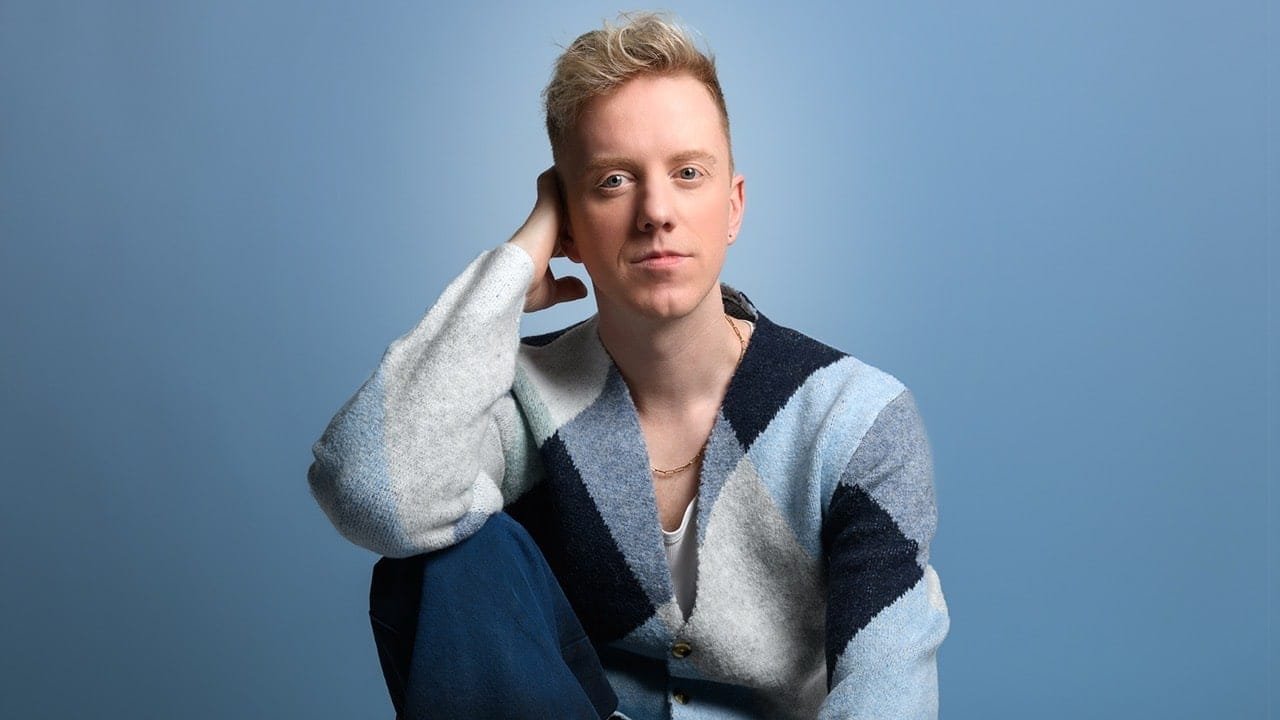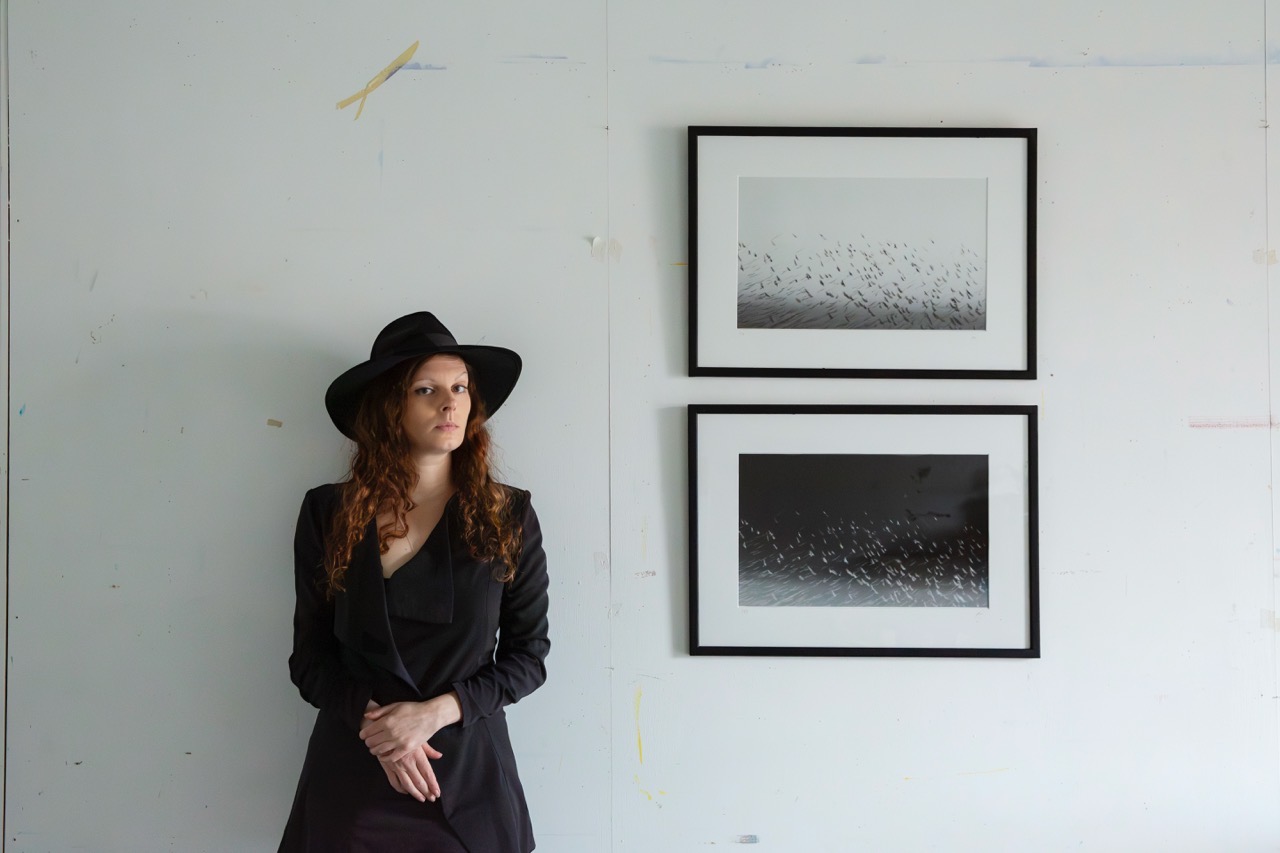In her bold new direction of Heisenberg at Arcola Theatre, Katharine Farmer reimagines Simon Stephens’ acclaimed play as a queer female love story. With Olivier Award-winner Jenny Galloway and Faline England in the lead roles, Farmer strips back familiar power dynamics to uncover something deeper about intimacy, identity and transformation. As an Artistic Associate of Arcola and an award-winning director, her approach challenges the norm and expands the emotional universe of this already iconic two-hander.
Your reimagining of Simon Stephens’ Heisenberg through a queer lens is a bold and innovative approach. What initially inspired you to reinterpret this intimate story in such a transformative way?
The inspiration came from my experience directing Heisenberg in 2019, where I fell in love with the script but felt there were unexplored dimensions beneath the surface. After the pandemic, I began to see the play differently – its themes of isolation, uncertainty, and unexpected connection took on new resonance. After talking with Faline England who also played Georgie in my previous production, I became fascinated by how the play’s meditation on uncertainty might be illuminated through a queer female relationship, free from the prescribed roles and expectations of heteronormative dynamics.
By recasting Georgie and Alex as two women, you challenge traditional narratives of age and power. How does this shift deepen the exploration of identity and human connection within the play?
This recasting fundamentally transforms the power dynamics while preserving the emotional core of the play. In heterosexual relationships, age gaps often come with culturally understood power imbalances… the older man typically holds social and economic power while the younger woman might leverage other forms of influence. By reimagining the relationship between two women of different generations, we disrupt these familiar patterns and create space for more nuanced explorations of vulnerability, desire, power and love.
The age gap between our characters also takes on different dimensions when viewed through a queer lens, particularly highlighting how society often dismisses relationships between women of different generations.
This shift also allows us to explore how queer women navigate intimacy without societal expectations or heteronormative expectations. The play amplifies the idea that it’s not about what you are (no labels) but it’s about what you do (your actions).
Your work has consistently pushed creative boundaries. What innovative directorial techniques did you employ in Heisenberg to capture the uncertainty and fluidity of relationships?
I approached this production with a commitment to embracing contradiction – creating moments where intimacy and distance coexist. We developed a physical and aural language for the production that mirrors Heisenberg’s uncertainty principle itself: the more precisely we define one aspect of a moment, the more deliberately ambiguous we leave another. I hope that the audience can never quite predict what will happen next.
The themes of love, loneliness, and transformation run deeply through the play. How did you use visual storytelling and staging to evoke the delicate balance between chaos and order in your characters’ lives?
The set design is stark minimalism – just two chairs that the characters constantly reposition to reflect their new environments and shifting emotional states.
Lighting plays a crucial role in our visual storytelling. We use an abstract, colourful design that intensifies the emotional world of their characters, and we rely on our sound design to transport us to different locations. We switch between diegetic music and nondiegetic music to support this. My designers Rajiv Pattani (Lighting) and Hugh Sheehan (Sound) are incredible artists and are really going to bring this production to life, I’m super excited to be working with them.
Alex’s character evokes queer longing and desire and we’ve really tried to amplify queer music soundtrack to support her sense of loneliness before she meets Georgie. I don’t want to give anything away, but I hope the sound design will really support these characters’ transformation over the course of the play – ever supported by a beautiful lighting design that will support these shifts between chaos and order, love and transformation.

Drawing from your extensive international experience, what creative insights did you bring from your previous projects that helped shape this fresh interpretation of Heisenberg?
Trusting the material is where I start every production. If I trust the writer deeply and implicitly, that then becomes the bedrock for the entire production. It becomes about authenticity, deep connection between the actors, and finding the rhythms of the play.
Every show I direct looks and feels quite different, and this because no two plays are the same. I dig into a story, decide what I want to say, and let that dictate the world we build. That starts with finding the right cast and right designers.
My previous work on Heisenberg in California gave me intimate knowledge of the text’s architecture, allowing me to recognise which moments could expand into new emotional territory through our queer reimagining. That production taught me where the play’s pulse points are… the moments where transformation happens which has been invaluable in this new interpretation.
Perhaps most significantly, my international experience has reinforced the importance of universal emotional truths while highlighting how they manifest uniquely in specific contexts. This production embraces that tension, honouring the universal aspects of human connection that make the play so powerful while exploring the particular textures of queer female experience.
Heisenberg explores the ambiguity of getting to know someone, much like the unpredictability found in quantum physics. How do you translate this abstract concept into the tangible emotions portrayed on stage?
We approached this reimagining by focusing on moments of simultaneous knowing and unknowing, creating scenes where characters reveal themselves while simultaneously becoming more mysterious.
We’ve focused on the emotional truth behind Heisenberg’s uncertainty principle – that perfect knowledge is impossible, that connection requires embracing ambiguity.
This comes from the characters having genuine curiosity about each character, creating moments where they’re truly discovering different facets of each other, making the principle of uncertainty a lived emotional experience.
Reinterpreting a familiar narrative can be challenging. What were some of the key obstacles you faced in reinventing Heisenberg, and how did you overcome them to maintain the play’s emotional resonance?
One significant challenge was ensuring our reimagining felt authentic rather than imposed on the text. Stephens’ writing is precise and carefully constructed, so we had to honour its integrity while opening new interpretive possibilities.
Finding the right balance between maintaining the play’s universal qualities while highlighting specific queer experiences is another thing are working hard on achieving. We want to honour how the play speaks to fundamental human experiences while also acknowledging how those experiences manifest uniquely in queer lives.
Throughout the process, we remained guided by the emotional truth at the heart of the play: the courage it takes to be seen by another person, and how that visibility can transform us. Whenever we faced challenges, we returned to this core truth, ensuring that our reimagining enhanced rather than obscured the play’s emotional impact.
As an artistic leader at Arcola Theatre and through your work with Blue Touch Paper Productions, how do you see this project influencing your future work in challenging conventional storytelling and pushing creative innovation?
This project has deepened my commitment to finding fresh perspectives within established texts, revealing how seemingly small shifts in interpretation can fundamentally transform theatrical experiences.
The process of reimagining Heisenberg has reinforced my belief that uncertainty itself can be a creative principle. That leaving space for discovery and embracing ambiguity often leads to profound artistic experiences.
Working at Arcola Theatre, I’m reminded of the power of proximity and immediacy in theatrical storytelling. I’m inspired to continue developing new work and reimagings that create environments where audiences feel like they’re witnessing something private, unfolding in real time.
Most significantly, this project has reinforced my belief in theatre’s capacity to create meaningful connection across boundaries. As both Arcola and Blue Touch Paper continue to develop new work, I’m committed to stories that explore how other people can transform us.
A lot of my work to date has been about characters on the periphery of society. That’s something I will continue to hone as my career progresses and I find new stories to tell, whether that’s through my experience at Arcola or with my own theatre company.
xxx
Heisenberg
A queer reimagining of Simon Stephens’ story of love, identity and human connection
Written by Simon Stephens | Directed by Katharine Farmer
9 April – 10 May
Arcola Theatre, 24 Ashwin Street, London E8 3DL
Mon – Sat 7pm, Sat matinees 3:30pm
£29.00 – £15.00 | www.arcolatheatre.com | 020 7503 1646







